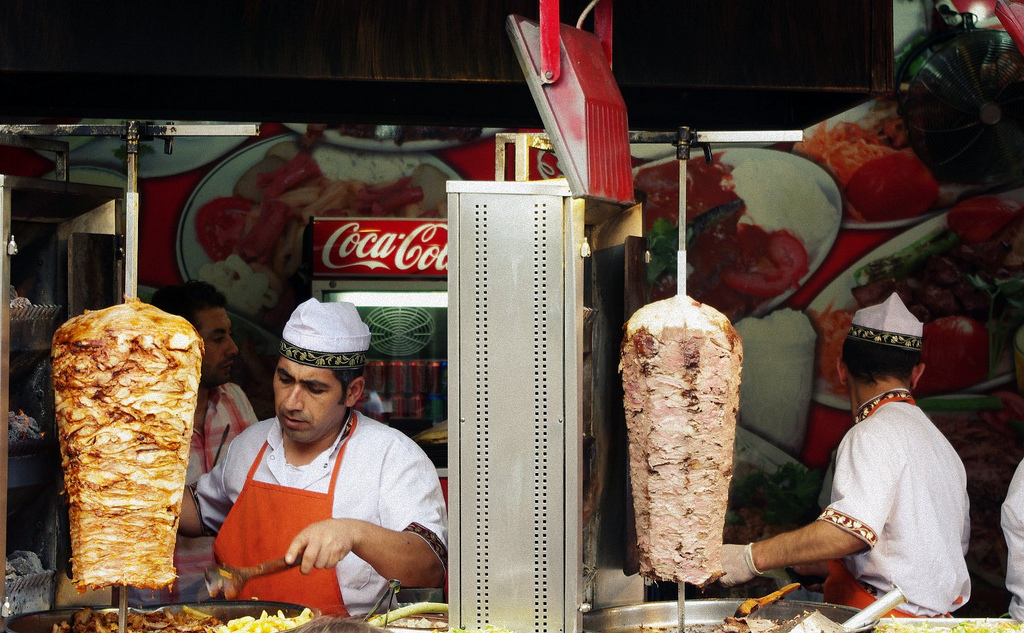Neukölln, Berlin’s hipster district, is the gritty face of the city’s burgeoning gentrification process. Here, shisha cafes and falafel shops satiate Middle Easterners and Westerners alike, the stark divide between the ones we define as immigrants and those we call expats clear. The latter came for the low rents, multicultural mood and cheap falafel. They stayed for the cozy bars, candlelit restaurants and new night-life spots which are popping up all the time. Although best known as ‘Little Istanbul’ for its 36,000-strong Turkish population, nearly 17,000 of Berlin’s 83,000 Arabs reside in Neukölln. Of these 83,000 an estimated 35,000 of these are of Palestinian origin and over 25,500 are Lebanese, either by birth or family history. Most of the Palestinian Berliners I have met so far were either born in Lebanese refugee camps or in Berlin to mothers and fathers who fled Lebanese refugee camps. Asking them where they are from elicits a reply along the lines of, “Palestine, but via Lebanon.” Azzam Supermarkt sits on a section of Neukölln thoroughfare Sonnenallee I’ve come to know as ‘Little Palestine’, owing to the amount of Palestinians I’ve met there. I go…
‘Little Palestine’ in Berlin: Home of Hummus, Hipsters and Solidarity
March 20, 2015



